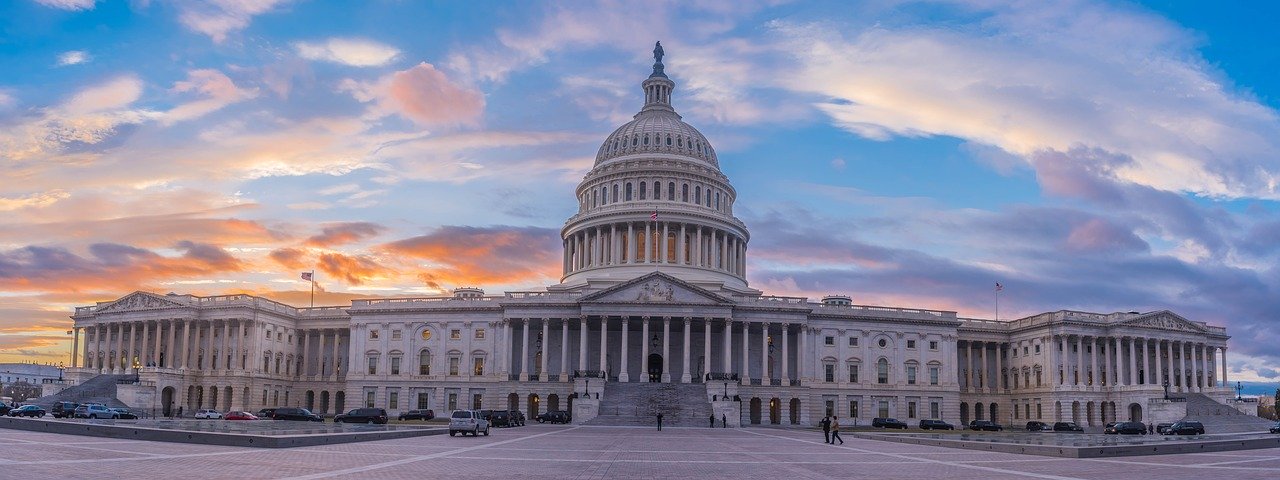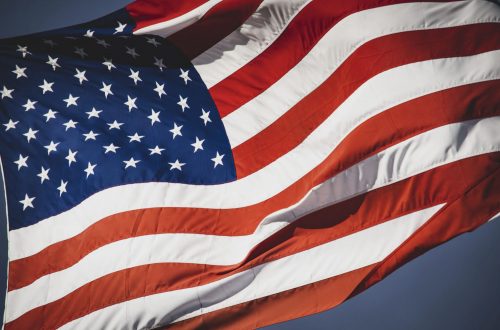I’m a teetotaler; Tim Challies is not. Nevertheless, I think that everyone should read what Tim has to say about alcohol and Christian freedom. He notes a subtle contempt that the “young, restless, and reformed” sometimes exhibit toward their more scrupulous forebears. He writes:
This older generation sees the younger crowd as celebrating freedom by rubbing it in their face. They hear us saying, “We are liberated by grace; you are bound by law.” They are convinced that instead of respecting them and honoring them, we are sneering at them and looking down at them. Instead of using our freedom in love and respect, we are using our freedom carelessly and even spitefully.
So forget for a moment whether alcohol is good or bad or indifferent. Instead, think about how you regard those who believe the opposite of what you believe.
Read the rest here.




12 Comments
Brett Maragni
I have watched with much concern over the past decade as more and more young conservative evangelicals have rejected the teetotaling practice of their parents. In some cases, it indeed seems to be a cavalier attitude, as Tim points out. Speaking of freedom, I love the fact that, in Christ, I am free to enjoy life without the aid of the drug alcohol. I believe a joy-filled (via the Spirit) alcohol-free life is one of the ways in which we can show ourselves distinct (set apart) in this world. I appreciate Tim’s spirit in his post. We definitely need to avoid making this topic a top-tier issue; it’s not worthy of breaking fellowship. But I would like to see more of us, who are teetotalers, step up to the plate with robust, compelling arguments for our position. It seems the YR&R crowd has been fairly effective in trumpeting their position (granted, not all in the YR@R camp advocate drinking, but most do…it’s virtually a plank in the party platform!). Perhaps you already have, but I’d love to see you, Dr. Burk, devote a post to your (our) position. Thanks!
Don Johnson
What the Bible says for new covenant believer is fairly simple: 1) do not get drunk and 2) do not let your freedom be a cause of another to stumble. Someone can always choose to make a fence around the Torah and choose never to drink, but this is a personal decision and it is legalism to teach that a believer can never drink in faith, just like it is license to teach that a believer can get drunk in faith; both are wrong. It is true that some believers should never drink, for example, if they cannot stop and so would get drunk.
Derek
I’m not a teetotaler either – but I agree that some of the attitudes among my YRR friends concern me. At times, there is an almost self-righteous pride in “not being legalistic”. This is ironic, considering how infrequent it is to hear of teetotalers imposing their convictions on others.
Daryl Little
Derek,
Clearly you live where I don’t. Where I live (south-western Ontario, Canada) teetotalers will often make alcohol a make-or-break issue, whereas those of us who drink, don’t flaunt it at all.
Those who I know, who enjoy a drink from time to time, have no problem with those who would rather not. In fact, I’ve often witnessed “drinkers” going out of their way to make sure that teetotalers feel comfortable.
On the other hand, being seen with a beer in hand, is often enough to be effectively shunned by the other crowd.
I think you will find that the very reason for the YR&R crowd being so open and too-often blatant in their enjoyment of alcohol, is a reaction to the very legalism that swept the churches during prohibition.
Not saying that justifies anything (not saying it doesn’t either, mind you…) but I am saying that there is an understandable reaction among those who, having been taught that teetotaling is a Christian pillar, discover that not only is that not biblical, but that God gave us alcohol as a gift.
Andrew
I guess I’m a YR&R. Definitely not a teetotaler, although I’m bound by the seminary covenant to be one for now. I wrote my paper for ethics on this issue and was baffled by the arguments many made for the teetotaler position. Biblically, wine was a gift from God. Why do we insist on calling God’s gift to us evil? I have no problem with those who make a personal commitment not to drink. But the way many of the arguments are made is legalistic and just makes hypocrites out of people in our churches who hide the fact that they enjoy a drink on occasion. The church needs greater clarity on this issue that will take time.
Nate
Andrew, just curious. You say that you are YR&R, but then you also say that you bound yourself to a seminary who will not allow you to drink. Many of the YR&R crowd would say that being bound to not drink is sin. Are you willing to pastor a church that has by-laws that says pastors/deacons cannot drink? If not, why are you being bound at seminary? There are many reformed seminaries that you could have attended that would not have bound you. Or, will you take a pastoral position like that, and then try and change the by-law?
David R. Brumbelow
Andrew,
Yes, wine is a gift from God. But there were obviously different kinds of wine. Unfermented wine was common in Bible days and in the ancient world, and it was also called “wine.”
Contrary to common myth, they could easily preserve unfermented wine; they had multiple ways of doing so.
Jesus Himself called unfermented wine by the name “wine (oinos).”
David R. Brumbelow
Derek
Andrew,
We must all keep in mind that the law of love is the law that binds us together. According to Romans 14, especially verse 15, we will abstain or partially abstain from certain things in order to fulfill the greater law of loving our brothers and sisters who are not as strong as we are. Personally, I would probably prefer not to attend a school that had a non-alcoholic covenant, but it would not be one of the top 10 considerations for me. Plus, there are many college students who cannot control themselves at that age and in a college environment – especially if they come from a non-Christian environment. I have several Christian brothers who face a powerful temptation to drink and even one drink would be deadly to them. So for the sake of love, I choose to abstain in their company – and would certainly not discuss my favorite wine or beer in their presence either.
donsands
“Yes, wine is a gift from God.”-David
Amen.
“Now there were six stone water jars there for the Jewish rites of purification, each holding twenty or thirty gallons. Jesus said to the servants, “Fill the jars with water.” And they filled them up to the brim. And he said to them, “Now draw some out and take it to the master of the feast.” So they took it. When the master of the feast tasted the water now become wine, and did not know where it came from (though the servants who had drawn the water knew), the master of the feast called the bridegroom and said to him, “Everyone serves the good wine first, and when people have drunk freely, then the poor wine. But you have kept the good wine until now.”
John 2
Andrew
For those who addressed me, I go to Southern. I’m not a college student. I’m a fourth year seminary student.
I did not factor in drinking to my decision of a seminary. It’s not that important to me. I’m a glass of wine once in a blue moon kind anyways. If I were to become a pastor of a church with a no drinking clause in its by-laws, it would probably be low on the priorities of changes.
I think if anything, I would first approach the underlying assumptions. There are some assumptions in many of the arguments for abstinence that I find problematic.
Many think alcohol in itself is evil. Dr. Paige Patterson assumes this in his BP article I read when working on a paper on the subject. That is a problematic assumption. It says that evil exists outside the human heart. Jesus tells us otherwise. It is not what is outside that enters in and makes us unclean, but when what is inside and unclean comes out. This leads to a misunderstanding of the nature of sin.
There is also those who take their case for personally abstaining and turn it into a law separating believers from unbelievers. We tend to look down on brothers and separate ourselves from the ‘tax collectors and sinners’ because of this. Personally, I have no problem with someone choosing to abstain. Dr. Daniel Akin’s Baptist Press article that has also been featured on his blog a few times gives some very good reasons that he and his wife abstain, due to her family history of alcohol abuse. Dr. Akin argues that it is a matter of wisdom for them to abstain, but takes the argument a step further and says all believers should. I don’t think that is warranted, and the harder you press it, the further you walk toward legalism.
I think we also miss the communion that our society shares around a drink when we choose not to. We may miss out on many witnessing opportunities, since abstaining communicates to the lost an aloofness and superiority complex, whether or not there is any truth to these perceptions. The idea of sharing a drink to many in our society is much like first century table fellowship, especially among younger people and singles.
So my concern is not even really the issue of alcohol, but the underlying assumptions behind why we might abstain. I have no problem with the one who abstains in faith, led by his conscience. What I have a problem with is the one who imposes his conscience on everyone else, calls God’s gift evil, and separates himself from others over this issue.
Nate
Andrew: Just some more rambling thoughts.
I’m still puzzled by your decision to attend Southern considering your statement that, while it would be low on your list, you would address the underlying assumptions at a church that imposes abstinence on the leaders. Have you attempted to do that at Southern? It would seem that you were willing to be bound to attend Southern, but will attempt to initiate change at a church you pastor (albiet, however slowly you proceed). I find that statement troubling simply because there were many other seminary options that would not have asked you to abstain.
Dr. Akin, while stating that he believes that believers should abstain from alcohol has never (to my knowledge) taken the position that membership in a local church requires a person to sign an abstinence statement on drinking. Dr. Akin would say that pastors/elders/deacons (and possibly those in leadership positions) should abstain, so he is not taking as stark of a stance as you imply. Again, you take a position that Dr. Akin is walking (if not already there) towards legalism, but you willingly bound yourself (legalistically?) to attend Southern.
As far as the communion with those in society and how they will perceive you in your attempt to evangelize them, that is purely a personal opinion, which is your right. However, a Muslim might see you as loose with your morals because you do indulge, just as much as a secular humanist might view you as a prude if you abstain, so I don’t think your argument holds in all cases. Your position is fraught with its own issues. For example, what will your position be when (and I do say when) marijuana is legal? Just as one can say they can drink without becoming drunk, so can a person say they can smoke without becoming intoxicated to the loss of self-control. This will be an issue, probably in the next 10 years or less. The same arguments used for drinking will be in play for this. And, if you say that the bible speaks of wine (and beer) but not marijuana, are you abstaining from all distilled spirits as well, because there was no distilation process until the middle ages.
Finally, read Acts 15 and explain to me how Paul willingly submits to the restrictions placed upon him by the Jerusalem Council (for the church at Antioch) about not eating meat sacrificed to idols and tell me how that is any different than a church asking their leadership to abstain from alcohol? Paul, while not willing to let Titus be circumcised, was willing to accept the Jerusalem Council’s dictum to not eat meat sacrificed to idols. (Oh, and let’s not forget that Paul circumcised Timothy in order for Timothy to have a better witness). By the letter to Romans though, Paul is writing that meat sacrificed to idols (for the church at Rome) is something that each believer should consider for himself, and for the way it might affect a younger believer in the faith.
Your position to drink is personal and certainly not unbiblical and yet so is one of abstension. I personally think your willingness to attend Southern (presumably because you feel it is the best education) and therefore bind yourself to an abstinence clause should keep you from attempting to change a church’s position on the same matter. If you want to plant a church or seek a pastoral position in a church where drinking is allowed for leadership, fine. To me, for you to bind yourself at Seminary and then seek to unbind a congregation is problematic, no matter how slowly you proceed.
Andrew
Nate,
A rambling response… Southern doesn’t make the covenant well known in advance. So it was not involved in my decision to come here. I don’t know that it is full-blown legalism, but I am concerned that it might become that. Honestly, the issue has barely come up in classes. Dr. Burk and I did discuss it in 1 Corinthians class. There is not a lot I can do to personally address the issue with my seminary. I submitted my ethics paper on the subject. I have voiced these concerns. Beyond that, I don’t see much of an effect that I could have at this time. My position here is different than it would be were I to go in and pastor a church. Here it requires submitting to authority, whereas if I were to become pastor of a church, the tables would be turned.
I am fine with Dr. Akin’s personal position. My statement was more that I see problems when he tries to extend that position to a requirement for others, especially to the wider Christian community beyond his church and seminary. My statement was not intended to be as strong as you seem to have read it.
I don’t see it as legalism for me to bind myself not to drink, though I believe I may. Paul was free to do many things he chose not to do – bring along a wife, accept money from his churches. It is not an issue of whether or not drinking or abstaining makes one right with God, but whether it is wise as a Christian, and especially a church leader to do so. I disagree with the position Southern has taken, but honestly, even if I were not bound to the covenant, I may not have drank anyways.
Regarding societal communion, I was arguing for our society. I realize that a Muslim society would have a different opinion on drinking. It takes wisdom to know where we are and who we are with. But if one takes a position either way beforehand, then the decision is not based on love and situational wisdom.
Marijuana is a different issue. Let’s not go there.
On the whole, I’m arguing for a more balanced approach. Whether I were to go to a teetotaler church or not, this is an issue that could need to be addressed, and addressed carefully. This is what Paul does. He undermines the wrong assumptions on both sides and holds up love as the central issue.